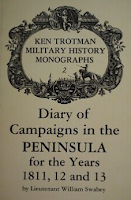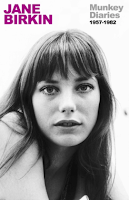 Byrom was born in or near Manchester on 29 February 1692. He was educated at Merchant Taylors School and Trinity College, Cambridge, where he first started writing poems and devising shorthand ways of writing. Although he went abroad, to Montpelier, to study medicine, he never practised as a doctor. Instead he spent many years promoting and trying to sell his shorthand system. In 1721, he married his cousin Elizabeth, and they had four children one of whom was also called Elizabeth (Beppy). He was elected a fellow of the Royal Society in 1724.
Byrom was born in or near Manchester on 29 February 1692. He was educated at Merchant Taylors School and Trinity College, Cambridge, where he first started writing poems and devising shorthand ways of writing. Although he went abroad, to Montpelier, to study medicine, he never practised as a doctor. Instead he spent many years promoting and trying to sell his shorthand system. In 1721, he married his cousin Elizabeth, and they had four children one of whom was also called Elizabeth (Beppy). He was elected a fellow of the Royal Society in 1724.
Byrom’s shorthand became widely adopted, being used by, among others, the Wesley brothers and Horace Walpole. On the death of his elder brother in 1740, Byrom inherited the family property which relieved him of giving shorthand lessons (for income), though he remained closely associated with the method. Indeed, in 1742, an act of parliament gave him the sole rights to the system for 21 years; thereafter it became freely available as The Universal English Short-Hand.
Apart from promoting his shorthand system, Byrom wrote comic and serious poems, the most widely known of which is the Christmas hymn, ‘Christians, awake, salute the happy morn’. He died in 1763. Some further biographical information is available at Wikipedia and Authors’ Calendar.
Byrom is remembered mostly for his diaries (extracts below) which were published by The Chetham Society in two volumes, each consisting of two parts (i.e. four books in all) between 1854 and 1857. They were edited by Richard Parkinson and titled The Private Journal and Literary Remains of John Byrom. The volumes are freely available at Internet Archive, but, for the most part, they are rather bland and weighed down with too much ordinary detail. (The fourth volume also contains a diary kept by Beppy which provides an eyewitness account of the arrival in Manchester of Bonnie Prince Charlie, the Young Pretender.)
1 February 1724
‘This day (being Saturday) I did for the first time advertise my shorthand in the Evening Post, and the writer of that paper made a mistake of Byron for Byrom, and from this time I design to take notice of any thing that shall happen in relation to it.’
29 February 1724
‘This day I am years old thirty-two. Mr Leycester and I went to get our advertisement printed. I gave 5s to the Daily Courant for an advertisement of my own, something different from the former, and have given 7s 6d to the Post Boy for the answer to Weston, which he also put in the Daily Post. From this place I went to Mrs de Vlieger’s in Leicester fields where I dined; and from thence we went to the opera, where we found Mr Leycester waiting at the door; we went to the first row in the gallery; I did not much like this diversion.’
19 March 1724
‘That day I was admitted Fellow of the Royal Society by Sir Hans Sloane, and Mr Bobert Ord at the same time. He and I went there together, gave Mr Hanksbee two guineas, and signed bond to pay fifty-two shillings a year.’
1 March 1726
‘Rose after six, went to Torbock’s; thence to Fairchild’s at Hogeden, called at Mr Ghaddock’s by the way, met Dr Eaton and Mr Digles; Fairchild showed me his garden, his ananas, melon, thistle, misletoe, inoculations, said at first he had no Paradise stocks to spare, but after we had talked he said my friend might have half a dozen. Thence back to Moorfields, where I went through the books; [. . .] Torbock carried most of them for me; coming through Wood-street we bought steel for punches, files 2s. 8d.; then we went to see a turning engine, the man not within; then to Pingo’s the medal caster, he not at home, but the woman showed us some of his casting; then to Bridgets auction.’
5 March 1726
‘Went to Mr Johnson’s, where I dined upon potted hare, very good; thence to George’s, where I saw Mr Sanderson, Pennant, and Coatsworth; thence to Mr Nicholls, writ out some of Finch’s speech to Queen Elizabeth, he would have had me write it all out, but I would not; Hunt told me his affairs succeeded very well; home near nine, had a fire made, stayed up reading Collin’s Enquiry concerning Human Liberty, sat up till near two.’
7 March 1726
‘Empson and Butterwick came this morning and had their first lesson in shorthand, and paid me each five guineas.’
27 February 1729
‘Called upon Mr Stanley, he began, paid five guineas, and promised no soul living should see it but himself; I showed him the way of coming at the alphabet, and left him to blunder by himself, and appointed to call on him to-morrow at nine. Thence to the Guildhall, met Woolston, who told me that he should not be tried to-day, because the Attorney General was not there; called upon Mr Lethuillier and drank a dish of chocolate with him; thence to Meadow’s, who put four Knight Errants in my pocket, and desired me to send them something, a poor introduction to such a design. I went to Will’s coffeehouse to enquire for Mr Salkeld, not there; I wrote shorthand in answer to Phebe and Mrs Byrom. To Richard’s; thence to the Royal Society, Vernon there from Cambridge; Dr Rutty read about ignis fatuus; humming bird’s nest and egg, mighty small; Molucca bean, which somebody had sent to Dr Jurin for a stone taken out of a toad’s head; Desaguliers made some experiments about electricity. [. . .] we had a very elegant supper, salmon, fowls, jellies, and a pint of Moselle very good, and a bowl of punch.’
5 January 1731
‘At night Houghton, Lloyd, and I came to the King’s Head, and the club being there, viz. two Hoadlys, Brown, Ray. I brought them in, and we had brawn and beefsteaks, and talked about Cheselden and the drum of the man Ray’s ear, and about the Royal Society, and futurity. Houghton and I went into the city, saw Salkeld at Will’s, who treated us with chocolate; thence we followed a man in a Turkish dress, I spoke and paid for a barrel of oysters to the woman at the Cross Keys; to Moorfields, where I bought J. Lead, Pordage, 1s. apiece; thence to Castlon’s the type maker, where Houghton and I went into the printing cutting place; he was married to another wife, who made excuses for his undress, we drank a pint of wine at the Swan, and he said types could not be made for our shorthand.’
31 August 1742
‘I have been at the other end of the Strand to enquire of a lady about a book that her brother-in-law, Dr Gheyne at Bath, is very fond of, from whom I have just received a letter, but could not find her at home. I won a pint of wine of Mr Pickering; he would lay that Prague was taken before he went, but we hear not of it in the Gazette yet, for I called in at the coffeehouse where Dr Pellet and company meet by Mr Lloyd’s lodgings; he is gone, I suppose, to the Guild, which makes a noise even here.’











